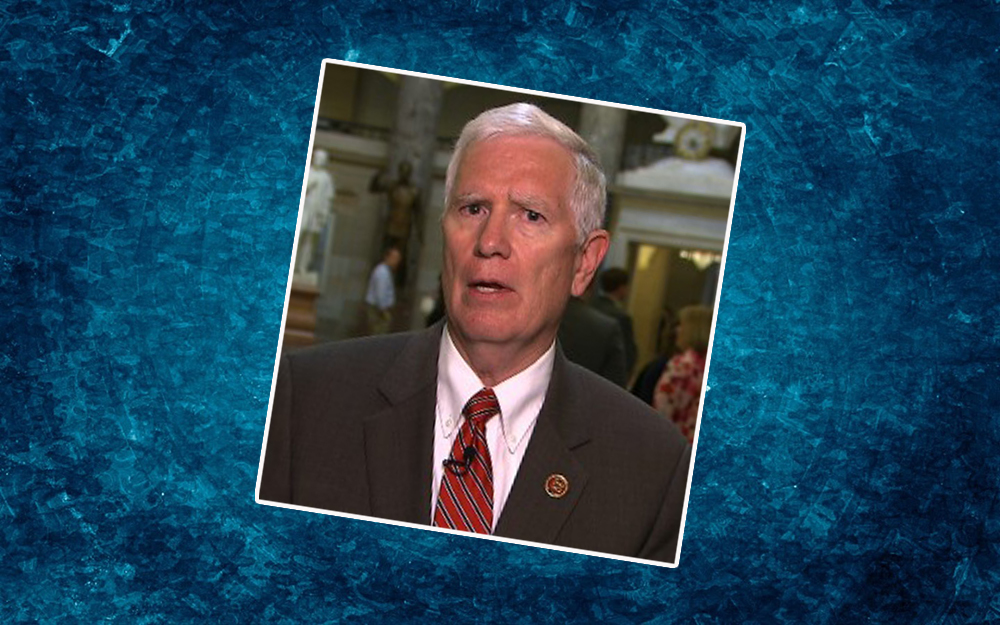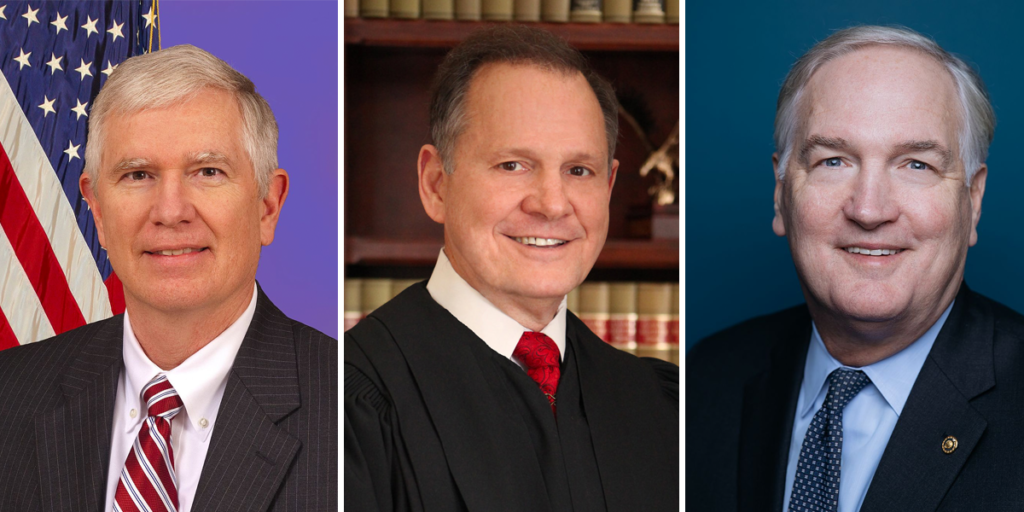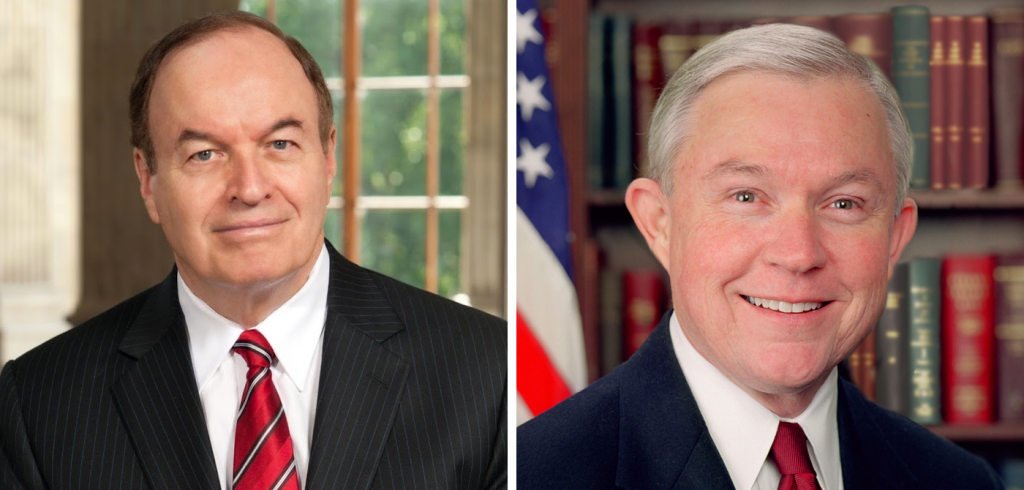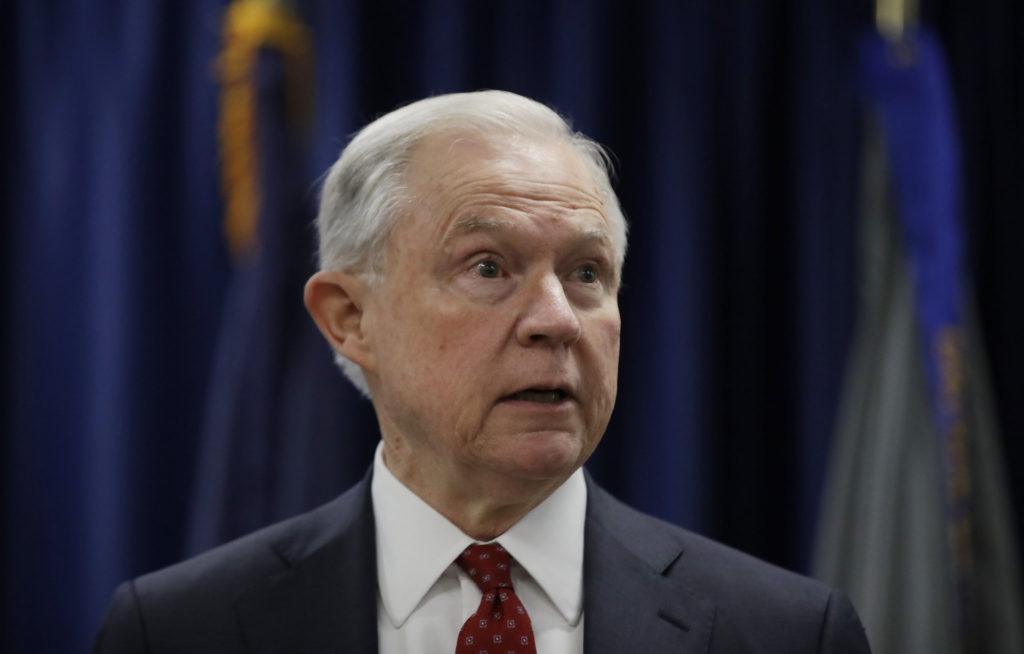Alabama Community College System announces new testing partnership

Alabama Community College System (ACCS) Chancellor Jimmy Baker on Tuesday joined Alabama Peace Officers’ Standards and Training Commission (APOSTC) Executive Secretary Chief R. Alan Benefield to sign a resolution that makes the ACT WorkKeys assessment the official testing requirement for admission into APOSTC academies to become a Law Enforcement Officer or a State Correctional Officer. The WorkKeys assessment is currently offered at all of Alabama’s community colleges for workforce development program testing, and will now be the exclusive testing centers for APOSTC’s Basic Ability Test, or BAT. The assessments help measure workplace skills that can affect job performance. Unlike other assessments, they don’t simply give an indication of reading and writing competency. Instead, they measure a range of hard and soft skills relevant to any occupation, at any level, and across industries. Additionally, successful completion of WorkKeys assessments can lead to earning an National Career Readiness Certificate™ (NCRC®) — a credential that verifies foundational workplace skills. “It is an honor for the Alabama Community College System to partner with APOSTC and the men and women in uniform who do so much to protect us each and every day” said Baker. “This partnership will allow law enforcement agencies across the state to easily schedule assessments at our local community colleges, and will provide them with better qualified officers who have the basic skills they need to succeed.” In 2014, APOSTC adopted the BAT as an additional educational requirement for Law Enforcement and Correctional Officer academy applicants to better determine educational aptitude which had become more difficult due to the increase in different types of high school diplomas. After several years of research into best practices in other states, APOSTC determined that the ACT WorkKeys assessment through Alabama’s community colleges was the easiest and most cost-effective method to establish a minimum educational base line that would demonstrate an applicant’s ability to successfully complete the law enforcement and correctional training academies. “The Alabama Peace Officers’ Standards and Training Commission extends our thanks and gratitude to Chancellor Baker and the many individuals within ACCS that made this agreement possible” added Benefield. “This partnership allows applicants to take his or her BAT at any of the 24 community colleges across Alabama, which are conveniently located to all law enforcement agencies in the state.” The ACT WorkKeys assessment is comprised of three skill areas: Applied Math, Graphic Literacy, and Workplace Documents (understanding memos, notices, policies, and other written text). While WorkKeys testing schedules may vary from college to college, pricing will be standard among all colleges: $45 for all three skill area sections or $15 for each individual section.
Mo Brooks using Alexandria shooting audio in campaign ad, skips vote on Capitol Police heroes

Senate Leadership Fund is once again blasting Senate candidate Mo Brooks for his latest campaign gaffes. This time, SLF is not the only group giving Brooks heat over a new campaign ad using audio from the shooting last month at a charity baseball practice in Alexandria, Virginia. The 30-second spot – called “Second Amendment” — opens with sounds of the actual gunshots heard when “Bernie Sanders supporter” James Hodgkinson shot Majority Whip Steve Scalise, a lobbyist, a congressional aide, and a U.S. Capitol Police officer. Brooks was on scene during the Alexandria shooting, and the ad touts his giving a belt “as a tourniquet to help the wounded.” The ad closes with, “I’m Mo Brooks, candidate for the Senate, and I approve this message.” Several media outlets questioned the spot, and Scalise’s office condemned the ad. In addition, while Brooks was in Alabama campaigning for Senate, SLF points out that Brooks skipped several key House votes, including one that unanimously passed a bill aiding those Capitol Police Officers shot last month. Ironically, Brooks is one of the 128 co-sponsors of HR 3298, which seeks to authorize the Capitol Police Board to make payments from the Capitol Police Memorial Fund those officers who “sustained serious line-of-duty injuries.” Shortly after the shooting, Scalise’s wife praised Capitol Police Officers David Bailey and Crystal Grinner, saying in a statement that they “saved the lives of everyone at the baseball field.” Brooks absence raised several concerns. Asked by the Washington Examiner whether the Huntsville Republican simply missed the vote because of a scheduling error, Brooks campaign manager Clay Mills responded: “It was not an accident. I can’t speak to if Rep. Brooks personally knew if that bill would be considered, though.” An email from SLF email also outlines three other significant votes Brooks skipped Monday while on the Alabama campaign trail: — #407: Authorize funding for the CIA, NSA and Office of the National Intelligence Director. — #408: Providing an additional $2 billion in veterans’ health care funding. (409,997 veterans live in Alabama, SLF notes.) — #409: To eliminate the 15-year time limit to use Post-9/11 GI Bill education benefits. SLF, the super PAC linked to Senate Majority Leader Mitch McConnell, is also behind MoBrooksMoLies.org, a website launched to fact-check Brooks as he faces a contentious Senate campaign against incumbent Sen. Luther Strange — who SLF is supporting — and former Alabama Supreme Court Chief Justice Roy Moore. A 10-person filed is vying for the Republican nomination to serve the remaining term of Attorney General Jeff Sessions. Last week, Roll Call reported on internal polling for what is emerging as a close three-candidate race; Moore leads with 27 percent, Strange at 23 percent and Brooks at 21 percent. Alabama voters have until July 31 to register for the Aug. 15 special primaries, both Republican and Democratic. The last day to apply for an absentee ballot is Aug. 10. If there is no primary winner — with 50 percent plus one — a runoff is Sept. 26; the general election is Dec. 12.
All I want in our Senate race is a time machine

If Roy Moore, Mo Brooks and Luther Strange were in grade school, I’d give them all a time out while I looked for a time machine so that they could each undo some of their biggest mistakes in this election. There’s little doubt that unless something changes soon, a run off for the U.S. Senate is inevitable and the top two will be from among these three candidates. Only rather than one racing to the top to earn votes it seems we voters are going to be left wondering which one will end up atop the dog pile in their race to the bottom. The person with the cleanest campaign right now is Moore, but rather than stay out of the headlines while he’s seemingly leading the pack; he can’t seem to stop talking about Islam, which he has quite the history in doing. Roy, keep your eye on the prize. Take your own advice that you gave to Brooks just earlier this week: The United States faces bigger, more pressing problems, Moore said, and those issues are what should be addressed during a Senate race, not whether to legalize medical marijuana. You should change “legalize medical marijuana” to a more relevant subject — tax reform, health care, education, national security or defense. That’s where you should be focusing. Then we’ve got Brooks claiming to be all-in for Donald Trump, when there’s substantial evidence he wasn’t. Like this radio interview in October of 2016 (start at minute 2 if you want to save time). If only there were a time machine to make him clarify his position before the November election. His words and his check-writing seem to be contradictory to being pro-Trump. Then, as if the ‘did he’ or ‘didn’t he’ argument wasn’t enough, then we have his new campaign ad featuring the Scalise shooting, which made my skin crawl. I wish I could not only unsee it but also that he wouldn’t have ever agreed with whoever said it was a good idea in the first place. It was disgusting. Finally, we’ve got Strange, who hasn’t been able to shake the dirty feeling that he made a bad deal with the Love Guv to keep the seat warm. I wish he had a time machine to pass on the appointment altogether, and take a clean shot at the seat during the special election. A Strange candidacy without the governor’s finger prints would be that much better to watch and easier to stomach. Frankly, I wish we had a time machine that would allow us to go back and just keep Attorney General Jeff Sessions in the seat. Considering all the negativity surrounding this race, piled on top of Trump’s recent attacks on him — that would certainly simplify this mess.
Trump or Sessions: Where will Cliff Sims’ loyalties lie?

Alabama’s own Cliff Sims was plucked from relative obscurity, running a statewide political blog, and given a plum job in the Trump campaign and later White House. Sims’ financial disclosures show he took a financial hit in taking his new post as the Special Assistant to President Donald Trump and the White House Assistant Communications Director. In this role, he pulls a cool $115,000, whereas he previously banked somewhere around $330,435 between Yellowhammer Multimedia and Yellowhammer Strategies. Which begs the question — how did he get this job in the first place? All signs point to his close relationship to former Senator Jeff Sessions and his staff. So, with Trump now on the warpath against Sessions, who was once one of his most trusted advisers, where does that leave Sims? Should Trump push out one of his earliest supporters does Sims leave too, or does he stay? If he stays, does he risk being seen as betraying Sessions or risk being seen as a potential liability to Trump’s team and those behind the efforts to undermine Sessions? Here’s hoping the Russia investigation blows over sooner rather than later, and Sessions keeps his post. After the Obama administration, there’s much to be done in the attorney general’s office to get our nation back on track. If Russia stays the major issue of the day, chasing out Sessions, we will finally get our answer of both Trump’s and Sims’ loyalties.
Richard Shelby, former colleagues come to Jeff Sessions’ defense

U.S. Sen. Richard Shelby rallied behind his former Senate colleague Attorney General Jeff Sessions Tuesday morning following a string of critical tweets from President Donald Trump. “During the past twenty years that I have served with Jeff Sessions in the Senate, I have had the opportunity to know him well. He is a man of integrity, loyalty, and extraordinary character. I join the people of Alabama in giving him my deep respect and unwavering support,” Shelby told Alabama Today and echoed on Twitter. During the past twenty years that I have served with Jeff Sessions in the Senate, I have had the opportunity to know him well. 1/3 — Richard Shelby (@SenShelby) July 25, 2017 Jeff Sessions is a man of integrity, loyalty, and extraordinary character. 2/3 — Richard Shelby (@SenShelby) July 25, 2017 I join the people of Alabama in giving Jeff Sessions my deep respect and unwavering support. 3/3 — Richard Shelby (@SenShelby) July 25, 2017 South Carolina-Republican U.S. Sen. Lindsey Graham, who served alongside Sessions in the Senate for 20 years, called him “one of the most decent people I’ve ever met in my political life.” “He’s a rock solid conservative, but above else, he believes in the rule of law,” Graham said in a statement. “Jeff understands that we are a nation of laws, not men. On occasion, I’ve vigorously disagreed with Jeff, but I’ve never once doubted his integrity or sense of fair play.” Both lawmakers came to Sessions’ defense after Trump tweeted on Tuesday that Sessions had taken a “VERY weak position” on Democrat Hillary Clinton regarding her emails and the intel leaks. Attorney General Jeff Sessions has taken a VERY weak position on Hillary Clinton crimes (where are E-mails & DNC server) & Intel leakers! — Donald J. Trump (@realDonaldTrump) July 25, 2017 Graham called Trump’s early morning tweet “highly inappropriate.” “Prosecutorial decisions should be based on applying facts of the law without hint of political motivation,” Graham said. “To do otherwise is to run away from the long-standing American tradition of separating the law from politics regardless of party.” pic.twitter.com/7Dk2GTbR9O — Lindsey Graham (@LindseyGrahamSC) July 25, 2017 Throughout the morning, other former Senate colleagues have joined Shelby and Graham, going on record stating their support for Sessions as well. “I’ve worked with Jeff Sessions for years, and while we certainly may not agree on the specifics of every issue, I believed he would be a great attorney general because of his unwavering commitment to the rule of law,” North Carolina-Republican Sen. Thom Tillis said in a statement. “…Following eight years of organizational and accountability issues plaguing the Department of Justice, Attorney General Sessions’ leadership is needed now more than ever.” “Jeff Sessions is a friend, former colleague, and an honorable person. He is a man of deep conviction and principle who believes in the rule of law. We may not agree on every policy issue, but I believe he always has the best interests of our country at heart,” added Ohio-Republican U.S. Sen. Rob Portman Even House Members have jumped into the fray, offering their support. Illinois 16th District U.S. Rep. Adam Kinzinger suggested the president “maybe just try a meeting” rather than public calling out his own Cabinet. Mr. President, maybe just try a meeting? This is beneath the office – of any held office – from city councilman to POTUS. https://t.co/5u7E2n0m6G — Adam Kinzinger (@RepKinzinger) July 25, 2017 “I think Jeff Sessions made the right decision in recusing himself, and I also understand the president’s frustrations at the decisions and actions that Attorney General Sessions that led to him having to recuse himself,” South Carolina 4th District U.S. Rep. Trey Gowdy on Fox News. “The president is frustrated that he picked an attorney general that had to recuse himself. The recusal was based on the attorney general’s failure to recall some meetings. So that’s what the recusal was based on. The recusal was appropriate, but I do understand the president’s frustration.”
Jeff Sessions’ days as Attorney General may be numbered

President Donald Trump has spoken with advisers about firing Attorney General Jeff Sessions, as he continues to rage against Sessions’ decision to recuse himself from all matters related to the Russia investigation. The president’s anger again bubbled into public view Monday as he referred to Sessions in a tweet as “beleaguered.” Privately, Trump has speculated aloud to allies in recent days about the potential consequences of firing Sessions, according to three people who have recently spoken to the president. They demanded anonymity to discuss private conversations. Trump often talks about making staff changes without following through, so those who have spoken with the president cautioned that a change may not be imminent or happen at all. What is clear is that Trump remains furious that the attorney general recused himself from the investigations. “So why aren’t the Committees and investigators, and of course our beleaguered A.G., looking into Crooked Hillarys crimes & Russia relations?” Trump tweeted Monday. His tweet came just hours before his son-in-law, White House senior adviser Jared Kushner, traveled to Capitol Hill to be interviewed about his meetings with Russians. Trump’s intensifying criticism has fueled speculation that Sessions may resign even if Trump opts not to fire him. During an event at the White House, Trump ignored a shouted question about whether Sessions should step down. The attorney general said last week he intended to stay in his post. If Trump were to fire Sessions, Deputy Attorney General Rod Rosenstein would be elevated to the top post on an acting basis. That would leave the president with another attorney general of whom he has been sharply critical in both public and private for his handling of the Russia probe, according to four White House and outside advisers who, like others interviewed, spoke on condition of anonymity to discuss private conversations. It could also raise the specter of Trump asking Rosenstein — or whomever he appoints to fill the position — to fire Robert Mueller, the special counsel leading the investigation into Russia’s meddling in the 2016 election and potential collusion with Trump’s campaign. The name of one longtime Trump ally, Rudy Giuliani, was floated Monday as a possible replacement for Sessions, but a person who recently spoke to the former New York City mayor said that Giuliani had not been approached about the position. Giuliani told CNN on Monday that he did not want the post and would have recused himself had he been in Sessions’ position. The president’s tweet about the former Alabama senator comes less than a week after Trump, in a New York Times interview, said that Sessions should never have taken the job as attorney general if he was going to recuse himself. Sessions made that decision after it was revealed that he had met with a top Russian diplomat last year. Trump has seethed about Sessions’ decision for months, viewing it as disloyal — arguably the most grievous offense in the president’s mind — and resenting that the attorney general did not give the White House a proper heads-up before making the announcement that he would recuse himself. His fury has been fanned by several close confidants — including his son Donald Trump Jr, who is also ensnared in the Russia probe — who are angry that Sessions made his decision. Trump and Sessions’ conversations in recent weeks have been infrequent. Sessions had recently asked senior White House staff how he might patch up relations with the president but that effort did not go anywhere, according to a person briefed on the conversations. Sessions was in the West Wing on Monday but did not meet with the president, according to deputy press secretary Sarah Huckabee Sanders. Newt Gingrich, a frequent Trump adviser, said that the president, with his criticisms of Sessions, was simply venting and being “honest about his feelings. But that doesn’t mean he’s going to do anything,” Gingrich said. Still, he said the president’s comments would have repercussions when it comes to staff morale. “Anybody who is good at team building would suggest to the president that attacking members of your team rattles the whole team,” Gingrich said. Sessions and Trump used to be close, sharing both a friendship and an ideology. Sessions risked his reputation when he became the first U.S. senator to endorse the celebrity businessman and his early backing gave Trump legitimacy, especially among the hard-line anti-immigration forces that bolstered his candidacy. Several of Sessions’ top aides now serve in top administration posts, including Stephen Miller, the architect of several of Trump’s signature proposals, including the travel ban and tough immigration policy. After Trump’s public rebuke last week, Sessions seemed determined to keep doing the job he said “goes beyond anything that I would have ever imagined for myself.” “I’m totally confident that we can continue to run this office in an effective way,” Sessions said last week. Armand DeKeyser, who worked closely with Sessions and became his chief of staff in the Senate, said he did not see the attorney general as someone who would easily cave to criticism, even from the president. “If Jeff thinks he is in an untenable position and cannot be an effective leader, I believe he would leave,” DeKeyser said. “But I don’t think he’s reached that point.” But Anthony Scaramucci, the president’s new communications director, said that it’s time for Trump and Sessions to hash out a resolution, regardless of what they decide. “My own personal opinion, I think they’ve got to have a meeting and have a reconciliation one way or another. You know what I mean? Either stay or go, one way or another,” he said. The Justice Department declined to comment. Republished with permission of The Associated Press.
Evangelical leaders rally around Jared Kushner amid Russia probe

Evangelical leaders are rallying around White House senior adviser and Trump son-in-law Jared Kushner as he meets with congressional leaders investigating Russian meddling in the 2016 election. A host of Christian leaders, from South Carolina Pastor Mark Burns to Liberty University president Jerry Falwell Jr., have been taking to Twitter and releasing statements voicing their support for Kushner as he spends two days speaking with congressional investigators on Capitol Hill. “I’ve known Jared for many years. He’s a man of integrity, character, and a great, personal friend,” wrote Paula White, a gospel preacher and Trump friend who prayed at Trump’s inaugural. “(E)nough-is-enough,” she wrote. Liberty University president Jerry Falwell Jr. blasted the “endless attempts by the media to keep the fake Russia collusion story alive- solely to obstruct the president’s agenda” in a statement Monday. “In Jared Kushner, they’ve picked the wrong fight. I don’t know a more competent person. He is brilliant and he is a man of the highest integrity,” Falwell wrote. Kushner insisted Monday that he had done nothing improper during the campaign as he met with members of the Senate intelligence committee for nearly three hours behind closed doors. He’s set to meet with lawmakers on the House intelligence committee Tuesday. The coordinated statements are the work of Johnnie Moore, an evangelical activist from California, who recently attended a faith outreach meeting at the White House and tweeted a powerful photo of Christian leaders surrounding the president, heads bowed in prayer. “We’ve all had it,” said Moore, adding that he and other Christian leaders have become close to Jared over the years. Moore said that he decided on Monday morning that he wanted to release a statement and sent a note around to fellow faith leaders asking if they had anything to add. “We didn’t ask permission. They didn’t even know we were doing it,” he said of the White House. “For us it was personal.” Trump won an overwhelming 80 percent of the white evangelical vote in the November election, and a Pew Research Center survey marking his first 100 days in office found three-fourths of white evangelicals approved of his performance as president, versus thirty-nine percent of the general public. Kushner, who is an orthodox Jew, acted as a liaison to the religious community, said Burns, the pastor from South Carolina, who served as an opening act at many Trump rallies. “Jared has been a huge instrument in giving us access to the White House. So this is just us showing our love and support back to him for what he has done for our faith-based community,” said Burns. Republished with permission of The Associated Press.
Trump commission can resume collecting voter data, federal judge rules

A federal judge on Monday cleared the way for President Donald Trump‘s commission on election fraud to resume collecting detailed voter roll information from the states. The commission asked states last month to provide publicly available data including registered voters’ names, birth dates and partial Social Security numbers, but it later told them to hold off until a judge ruled on a lawsuit filed by the Electronic Privacy Information Center in Washington. U.S. District Court Judge Colleen Kollar-Kotelly, in the District of Columbia, denied the advocacy group’s request to block the data collection in a ruling that commission vice chairman Kris Kobach called “a major victory for government accountability, transparency and the public’s right to know about the integrity of our elections processes.” “The commission requested this publicly available data as part of its fact-gathering process, which is information that states regularly release to political candidates, political parties and the general public,” said Kobach, the Republican secretary of state in Kansas. “We look forward to continuing to work with state election leaders to gather information and identify opportunities to improve election integrity.” The privacy group had argued that the commission should have completed an assessment of privacy concerns before making the request. The judge found that the group had standing to make that argument but said the commission is not an agency and therefore is not required to do such assessments. The judge also found the group failed to show that its members would be harmed by the data collection. “The only practical harm the plaintiff’s advisory board members would suffer … is that their already publicly available information would be rendered more easily accessible by virtue of its consolidation on the computer systems that would ultimately receive this information on behalf of the commission,” the judge said. She did not say that any states must comply with the commission’s request. The privacy group said it will be watching closely to see what the commission does next. “The commission cannot evade privacy obligations by playing a shell game with the nation’s voting records,” EPIC president Marc Rotenberg said. Similar lawsuits are pending in Texas, Florida and New Hampshire. The New Hampshire lawsuit, brought by two lawmakers and an American Civil Liberties Union chapter, was put on hold pending the outcome of the Washington case. Trump, a Republican, created the Presidential Advisory Commission on Election Integrity in May to investigate his allegations, offered without evidence, that millions of people voted illegally in 2016. At the panel’s first meeting last week, he questioned the motives of states that have refused to comply with the commission’s request, suggesting they had something to hide. Before the commission paused data collection earlier this month, an Associated Press count of states’ responses found 17 plus Washington, D.C., didn’t plan to provide any information. Election officials in some of those states questioned the commission’s intent to search for voter fraud; in some states, the main concern was voters’ privacy. Thirty states said they would provide limited information that was considered public already. And some of those states said the commission would have some hoops to jump through such as paying for the data or filling out additional request forms. Alabama, Hawaii and Idaho had not announced decisions about whether to comply. Republished with permission of The Associated Press.


